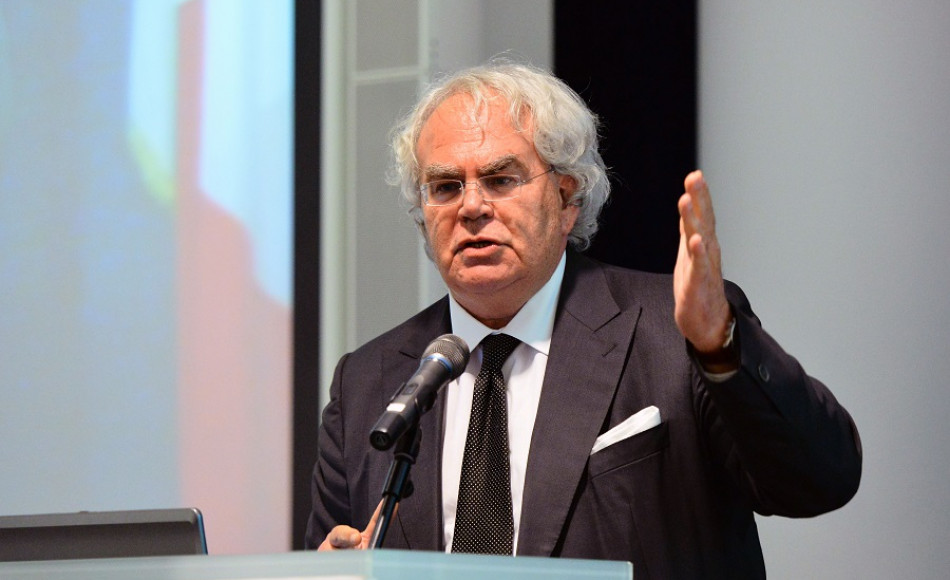Let me explain why the China-Russia blockade against the West will not win. Pelanda’s analysis

Conversation of Marco Orioles for Startmag with Carlo Pelanda, analyst, essayist and professor of Economic Geopolitics at the Guglielmo Marconi University
Russia's war unleashed against Ukraine. The role of the United States. The position of Europe. And the geopolitical scenarios. Here are the themes at the center of the conversation with Carlo Pelanda, analyst, essayist and professor of economic geopolitics at the Guglielmo Marconi University.
Second part of the conversation, the first part can be read here .
Professor, wouldn't the conflict in Ukraine have changed one iota of the US Grand strategy , which has been concentrated for some time in the tug-of-war with the Dragon?
In reality there has been a change and it is the advantage that this war has ensured for the democracies, which have finally come together. At this point, since we are talking about Grand strategy, I would like to make a reference to you also linked to my scientific activity conducted in the USA.
Please, tell me.
In February 2013, when Obama launched the Transatlantic Trade and Investment Partnership ( TTIP ) initiatives with Europe and the Trans-Pacific Partnership (TPP) with the Pacific region, a research program involving the University was simultaneously launched in I teach, as well as various think tanks . The project had a somewhat strange title: Conflictual Deglobalization and Selective Reglobalization.
Interesting. Can you explain the contents to us?
With the TTIP and the TPP, America had tried to build two market areas under its influence to try to block China and isolate Russia. This generated the tendency to bipolarization of the global market and the international system. China responded with the Silk Road and Russia in 2013/14 by increasing tensions in the East, basically to blackmail Germany and thus sabotage TTIP. From there began a process that does not lead, as many of my colleagues maintain, to multipolarity, with Europe representing an autonomous pole: the real trend is towards bipolarization, that is, the clash between the area of authoritarian capitalism and the area of democratic capitalism. As we found after starting our project, however, a fundamental element was missing, namely compaction. And here we return to the war in Ukraine …
Which, if I have understood correctly, has provided the missing piece.
Certainly. Putin has done a big favor to the bloc of democracies, including the enlarged G7, NATO and the EU, because he induced them to compact, stopping the tendency to diverge. Putin's action, pushed in my opinion by Beijing in substance even if not in words, created that factor that was missing, the moral reason to consolidate the whole of democracies.
What role can Italy play in this context?
Very interesting scenarios are opening up for Italy. Since access to the Russian market is now blocked and there are growing difficulties with the Chinese market, it becomes imperative for Italy to turn to alternative markets: the American one above all, in the context of a relationship that must be made more fluid, and then act more intensely. on the African continent and begin to look at South America with different eyes, that is to say at that immense gray area that lies between the two opposing blocks.
But the Chinese influence in Africa and South America has grown considerably
In reality, Africa, which China has long considered conquered, is contestable. I would say the same for South America, where an intelligent division of labor between the US and Europe would assign the latter the task of leading the dance, since the gringos are not very popular there. I remember that the Europeans are conducting a pre-negotiation to make a free trade agreement with the area that includes Brazil and the Mercosur countries.
Does Italy have everything to gain, therefore, from its belonging to the bloc of democracies?
Yes. If this trend towards consolidation of the block were confirmed over time, Italy would play bingo. Rome would in fact enjoy access to a safe market area, such as the American one, but also from growing volumes of exports to Africa and South America. Given its type of export, concentrated above all on light industry, Italy would greatly benefit from the formation of a very large international market, which would be guaranteed by an enlarged G7.
(Second part of the conversation, the first part can be read here)
This is a machine translation from Italian language of a post published on Start Magazine at the URL https://www.startmag.it/mondo/vi-spiego-perche-non-vincera-il-blocco-cina-russia-contro-loccidente-lanalisi-di-pelanda/ on Sat, 16 Apr 2022 06:25:08 +0000.
